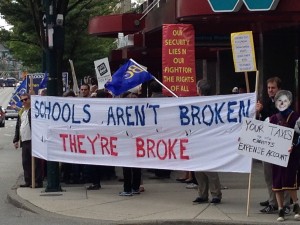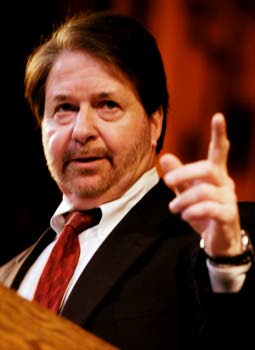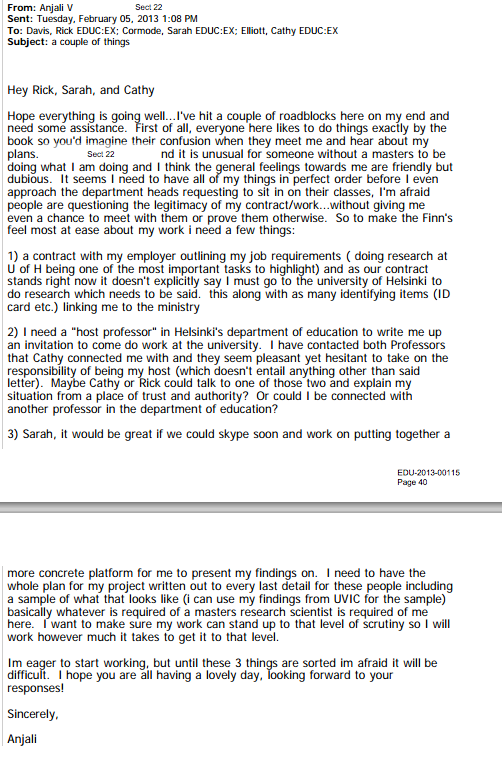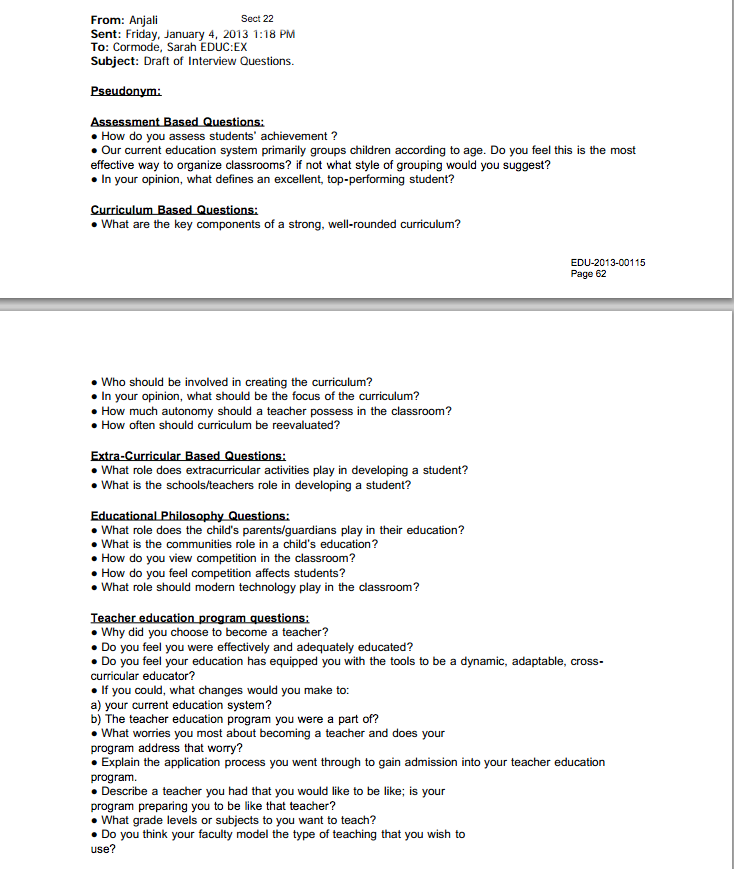25th Annual Peace Studies Conference
!! FREE AND OPEN TO THE PUBLIC !!
THEME: Security, Surveillance, and U.S. Imperialism
December 7, 2013
12PM to 7PM
Building: University Union West
Room: UUW 324 & 325
Binghamton University, New York, USA
___________________________________________________________
University Map, Directions, Lodging, etc:
http://www.binghamton.edu/visiting-campus/maps-and-directions.html
For General Questions contact Anna Pinchuk with Peace Action: 607-245-6695
___________________________________________________________
SCHEDULE
12:00 – 12:30 Tabling & Arrival Time
12:30 – 12:45 Welcome Address – Mallory Schmackpfeffer, President of Binghamton University Peace Action
___________________________________________________________
1:00 – 2:30 PANEL 1. PEACE IN EDUCATION
(1) Peace Studies for SUNY
The desirability of a SUNY-directed model of Peace Studies that would promote alternatives to violence through the creation of a minor by 2016 and a major by 2020.
Jack Gilroy is a high school teacher at Maine-Endwell and has been a peace activist since the Vietnam War. He was the director of the Committee of Responsibility in Upstate New York working to bring back war injured children from Vietnam.
(2) Activist Strategies for Peace Education
Educational pedagogies and projects that promote the implementation of peace that can be implemented in anti-bullying and other existing programs directed at youth.
Tim Wolcott teaches Life and Physical Science and supervises the greenhouse projects at Waverly Middle / HighSchool. As Adjunct Professor at the University of Albany he also directed Waverly’s Science Research Program.
(3) Guns on Campus: Securitization and Campus Policing
An interrogation of debates surrounding the campus presence of guns to police student populations and securitize the university environment to the detriment of peace.
Ben Brucato is a doctoral candidate in Science and Technology Studies at Rensselaer Polytechnic Institute. He has published research on surveillance and policing at colleges and universities.
___________________________________________________________
2:30 – 4:00 PANEL 2. RESISTANCE FOR PEACE
(1) End of Prisons
This is a two person presentation on a recently released book “The End of Prisons,” which provides an in-depth look at what prisons try to accomplish and how we can dismantle them through an abolitionist strategy of decarceration in the relation to the American legal system, national security, and human rights.
Mechthild Nagel is Professor of Philosophy at SUNY Cortland and is the Director of the Center for Gender and Intercultural Studies.
Ute Ritz-Deutch received her PhD in History From Binghamton in 2008 and currently teaches out of the History Department at SUNY Cortland.
(2) Resisting Federal Surveillance: The Case of Burning Books
After a decade of being under heavy federal surveillance for exercising free speech in support of the Earth Liberation Front, Leslie James Pickering discovered his associates are being questioned by the FBI, the Post Office copying his mail, and was individually put on a secret list for maximum security screening at airports. This multimedia presentation will show the methods of federal government uses to repress activists and ways in which they can be resisted.
Leslie James Pickering is an activist, author, and co-owner of Burning Books in Buffalo, NY. He was a spokesperson for the Earth Liberation Front Press Office from the late 1990s to the early 200s.
(3) The Embodied Resistance of the Black Body
Argues that resistance must come from one’s epistemic privilege and that the black body offers a unique positionality to confront sites of violence through their constant engagement with anti-blackness.
Raul Cepin is an undergraduate at Binghamton University and is a Varsity member of the University’s debate team.
___________________________________________________________
4:00 – 4:30 Break
___________________________________________________________
4:30 – 6:00 PART 3. Drone Warfare: Consequences and Resistance
(1) A History of Drones and Resistance
As drone warfare has increased the Upstate Coalition to Ground the Drones and End the Wars has begun campaigning to say no to targeted assassinations. Their actions of civil disobedience has resulted in numerous jailings and detentions of activists.
Jim Clune has been active with the Upstate Coalition to Down the Drones and End the Wars since its inception and has been to El Salvador, Iraq, and Palestine to stand in solidarity with those who have suffered.
(2) Syracuse’s Hancock Airbase
A focus at the 174th Attack Wing of the NY Air National Guard and recent court rulings that have issued orders of protection meant to suppress collective outcries against the victimization of women, children, and other non-combatants.
Ed Kinane formerly worked on Wall Street and taught high school and college. He has worked with Peace Brigades International in Guatemala, El Salvador, Haiti, and Sri Lanka.
(3) Drones as War on Terror
An account of people on the ground who have been killed by drone strikes and the absence of reports from the United States to provide a justification for their strikes, as drone policy finds itself exempt from national and international laws.
Judy Bello was jailed for 3 days for protesting the Hancock Air National Guard Base, co-led a FOR Delegation in Iran, administers the website for Upstate Drone Action Coalition, and blogs at The Deconstructed Globe.
___________________________________________________________
6:00 – 6:45 Awards – Dr. Amber E. George
Anna Pinchuk
“2013 Peace Studies Undergraduate Scholar of the Year”
Drew Winter
“2013 Peace Studies Graduate Scholar of the Year”
Reies Romero
“2013 Peace Studies Undergraduate Project of the Year”
Sarat Colling
“2013 Peace Studies Graduate Thesis of the Year”
Dean Nieusma
“2013 Peace Studies Faculty Project of the Year”
Animals and War: Confronting the Military-Animal Industrial Complex
“2013 Peace Studies Book of the Year”
Greedy Lying Bastards
“2013 Peace Studies Media of the Year”
Louis Kriesberg
“2013 Peace Studies Lifetime Achievement Award”
6:45 – 7:00 Concluding Remarks – Dr. Mechthild Nagel
___________________________________________________________

 Follow
Follow



